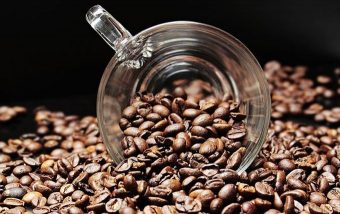
Coffee is not only my favorite drink, it’s a necessity (I get headaches from caffeine withdrawal). Even after a California judge decided this week that coffee should come with a cancer warning, my immediate response was to take another sip.
That’s because coffee does not cause cancer, top scientists have concluded. In fact, numerous studies show that coffee has incredible health benefits, from lowering diabetes risk and, yes, protection against cancer.
It’s important to note that Los Angeles Superior Court Judge Elihu Berle’s decision Wednesday was not to establish a coffee-cancer link. Rather, the outcome of the long-brewing lawsuit fell under California’s Proposition 65, which requires businesses to warn people of exposure to roughly 900 chemicals known to cause cancer or birth defects.
Roasted coffee beans happen to contain a known carcinogen called acrylamide, a chemical also found in fried potatoes and burnt toast. While very high doses of acrylamide can increase the risk of cancer in lab animals, it is not yet clear if it affects cancer risk in humans.
Because of the ruling, about 90 coffee roasters, retailers and distributors, including Whole Foods, Kraft and Green Mountain Coffee Roasters, might have to post warning labels on their coffee, the Los Angeles Times reported.
The National Coffee Association, whose members include Starbucks and Dunkin’ Donuts, plans to fight this decision and is “currently considering all of its options, including potential appeals and further legal actions.”
However, there are certain labels that these businesses should consistently adopt for human health and for the planet’s health, including “organic,” “Fair Trade Certified” and “shade-grown beans.”
Ultimately, the environmental footprint of our daily brew should be harder to swallow than its inconclusive cancer links. As EcoWatch detailed previously:
Coffee plants naturally prefer shade, as they evolved in the understory of the African jungle. But more and more, coffee is being grown in direct sun on monoculture plantations that resemble cornfields. Shade-grown coffee slipped from 43 percent of the world’s farms in 1996 to just 24 percent in 2010. Three-fourths of the coffee farmland in Brazil and Vietnam has no shade tree cover at all. Much of their production is cheaper, robusta beans that are generally used for instant coffee and low-price supermarket brands.
The coffee you choose may be harmful to your health, to the environment or to the growers themselves. Much coffee is grown using pesticides, which has been shown to be detrimental to coffee farmers. Also, pesticides used to combat the coffee cherry borer and coffee rust can remain in the environment.
On large coffee plantations, workers often toil in harsh conditions for subsistence wages. Children as young as six or eight work the fields, and just 13 percent of coffee workers in Guatemala have completed primary education. In contrast to these big plantations, small farmers generally cultivate less than seven acres of land and often struggle to earn more than the cost of production. Fair Trade coffee may or may not help: only the label “Fair Trade Certified” ensures that farmers receive a fair price for their coffee.
Climate change is also threatening crops across the world’s coffee bean belt. According to a report from the Climate Institute, commissioned by Fairtrade Australia & New Zealand, rising temperatures and changing rainfall patterns are already impacting coffee crops from Africa to Central America and the effects will worsen in the coming decades. Global warming could reduce global coffee production 50 percent by 2050, endangering the livelihoods of more than 120 million of the world’s poorest people.
So to my fellow coffee-lovers, if you want to continue enjoying your morning jolt, be kind to the planet and always choose your brands wisely.
Source: ecowatch.com


